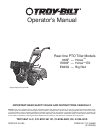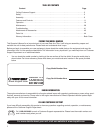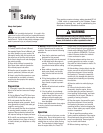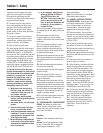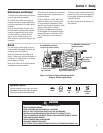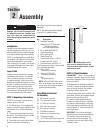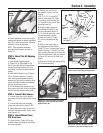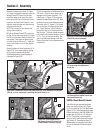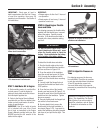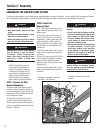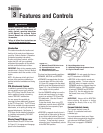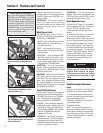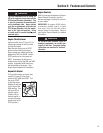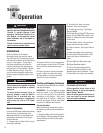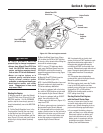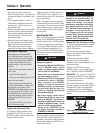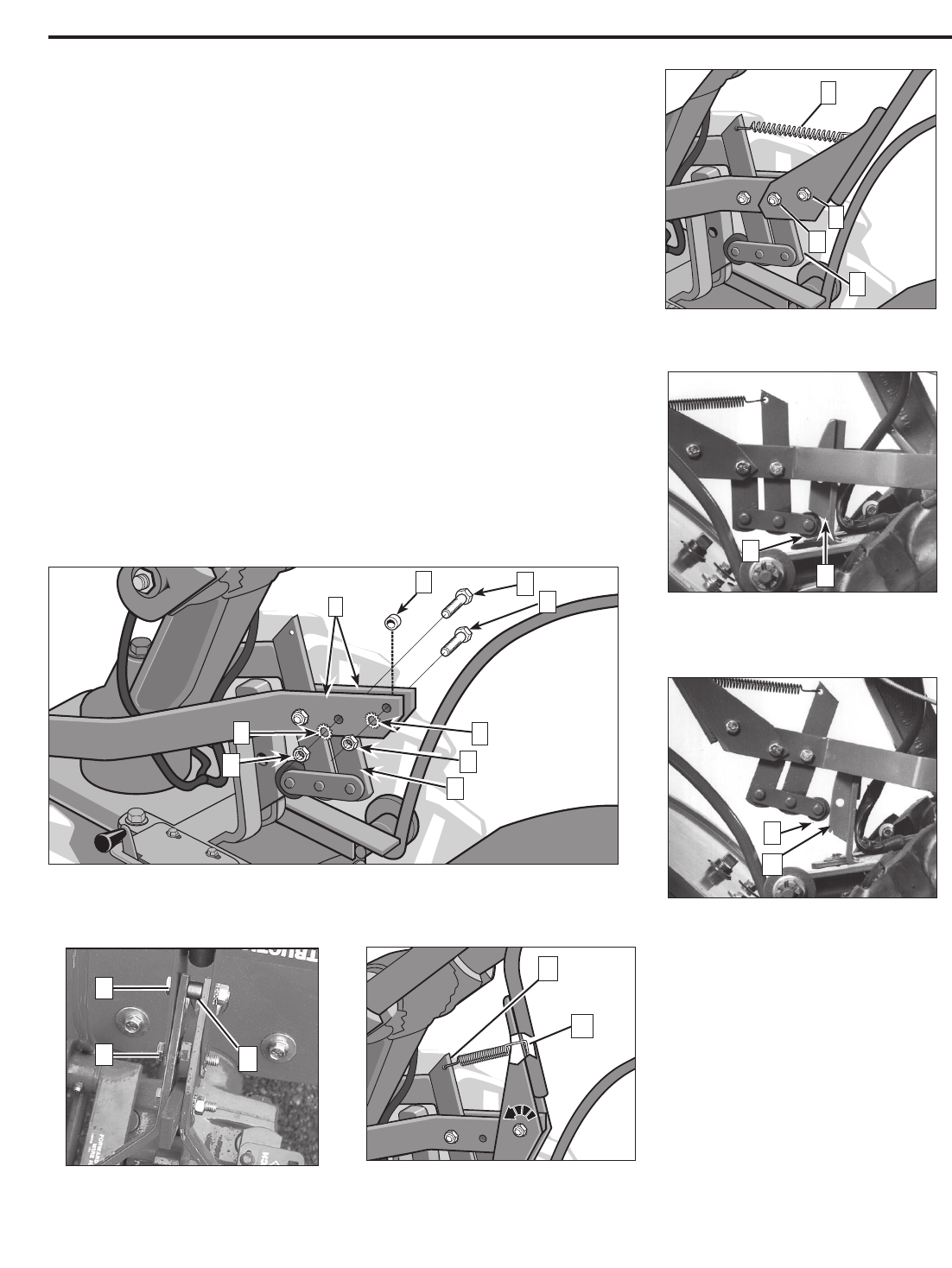
8
Figure 2-6: Illustration shows the yoke plates (H), nuts, washers, and screws
(A, E, B, F, D, G), bushing (C), and long and short links (I, J).
A
I
B
C
H
D
E
F
G
Figure 2-10 Forward position; roller
(T) rests under the adjustment
block (U).
U
T
Figure 2-11: Neutral position; roller
(T) rests against middle area of the
adjustment block (U).
T
U
Figure 2-8: Clutch pawl spring.
Tilt Wheels\Tines\PTO Lever fully
forward before installing spring.
N
M
Section 2: Assembly
Figure 2-9: Fully assembled Wheels/
Tines/PTO Lever assembly.
OIL
Figure 2-7: Drive Lever assembly.
K
J
L
Q
R
S
STEP 6: Check Gear Oil Levels
Your tiller has two separate transmis-
sions: one for the Power Unit (Figure
2-12), the other for the Tine Attachment
(Figure 2-13). Both transmissions were
filled at the factory with SAE #85W–140
weight gear oil (with an A.P.I rating of
GL-4). Check level in both transmis-
sions to verify that they are still correct.
See Section 5, Transmission Gear Oil
Maintenance for complete information
on how to check and fill the transmis-
sions.
P
Remove the temporary screw (J, Figure
2-7) from the forward holes and move the
Wheels/Tines/PTO Lever fully forward.
Install the wider hook end of the clutch
pawl spring (M, Figure 2-8) down into the
small hole at the end of the handle. Use
pliers to insert the other end into the hole
in the long link bar (N).
NOTE: Do not bend or over stretch the
spring while installing.
6. Pull the Wheels/Tines/PTO Lever back
to align the forward most holes (Q, Figure
2-9) in the yoke plate with the holes in the
lever plates. Also align the bushing that
is inside the short link bar (P). Install the
screw, star washer, and nut, then tighten
securely.
Securely tighten all other hardware (Q, R,
Figure 2-9). Also ensure that the spring
(S) is properly seated at both ends.
Completed assembly should appear as
illustrated in Figure 2-9.
7. Test the operation of the Wheels/Tines/
PTO Lever. Push the lever down until it
engages in the Forward position. The
clutch roller (T, Figure 2-10) must rest
beneath the adjustment block (U). Next,
move the lever up to the Neutral position.
The clutch roller (T, Figure 2-11) should
rest on the face of the adjustment block
(U). To test Reverse, lift and hold the
lever all the way up in Reverse position,
then let it go. The lever should automati-
cally return to the Neutral position (Figure
2-11). If not, do not use the tiller. See
your local authorized dealer or call the
Factory Technical Service Department for
instructions.



